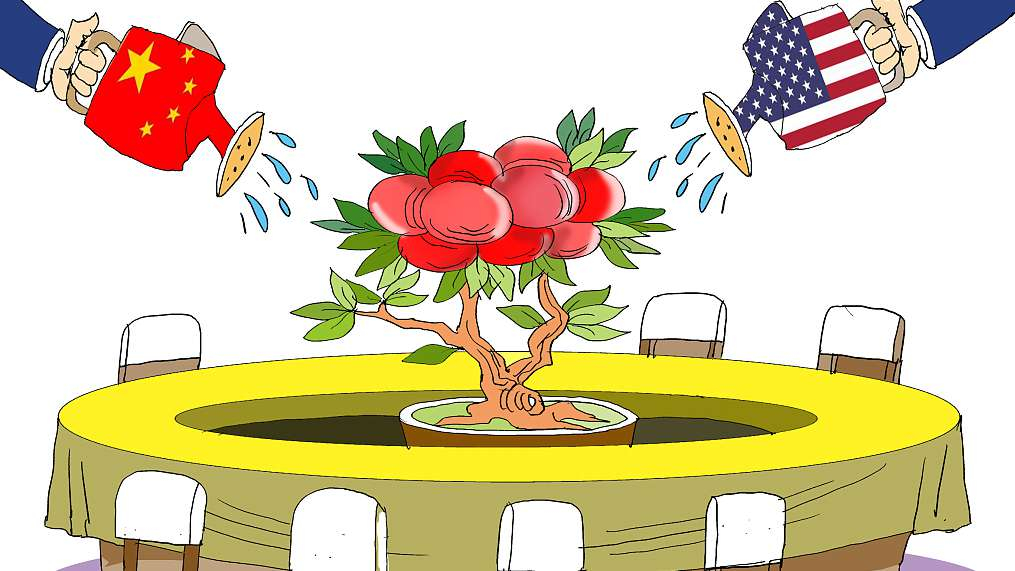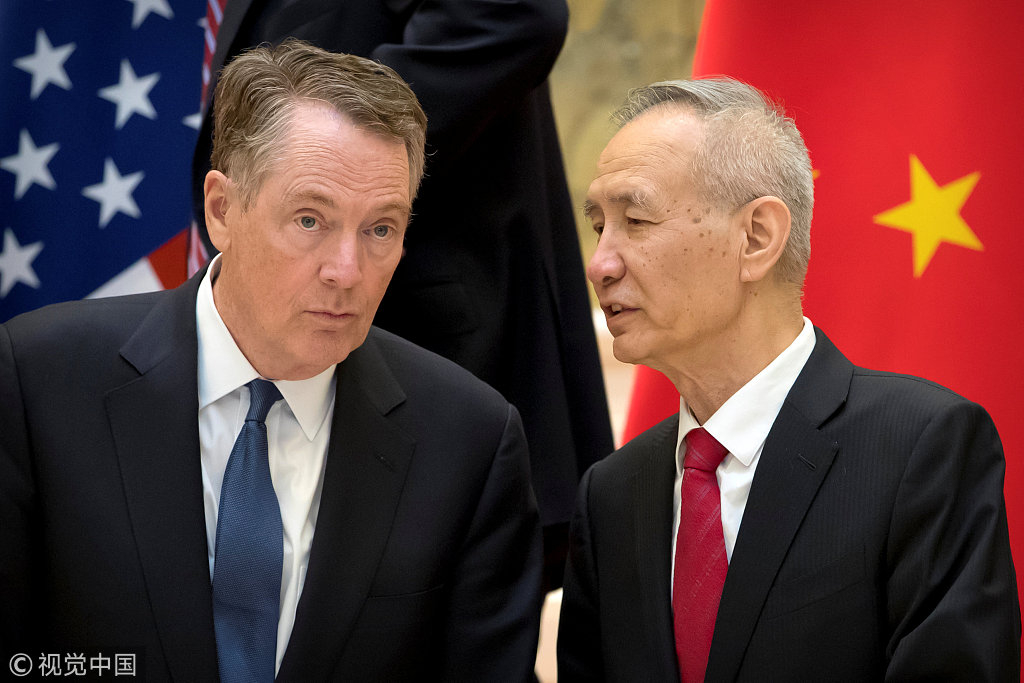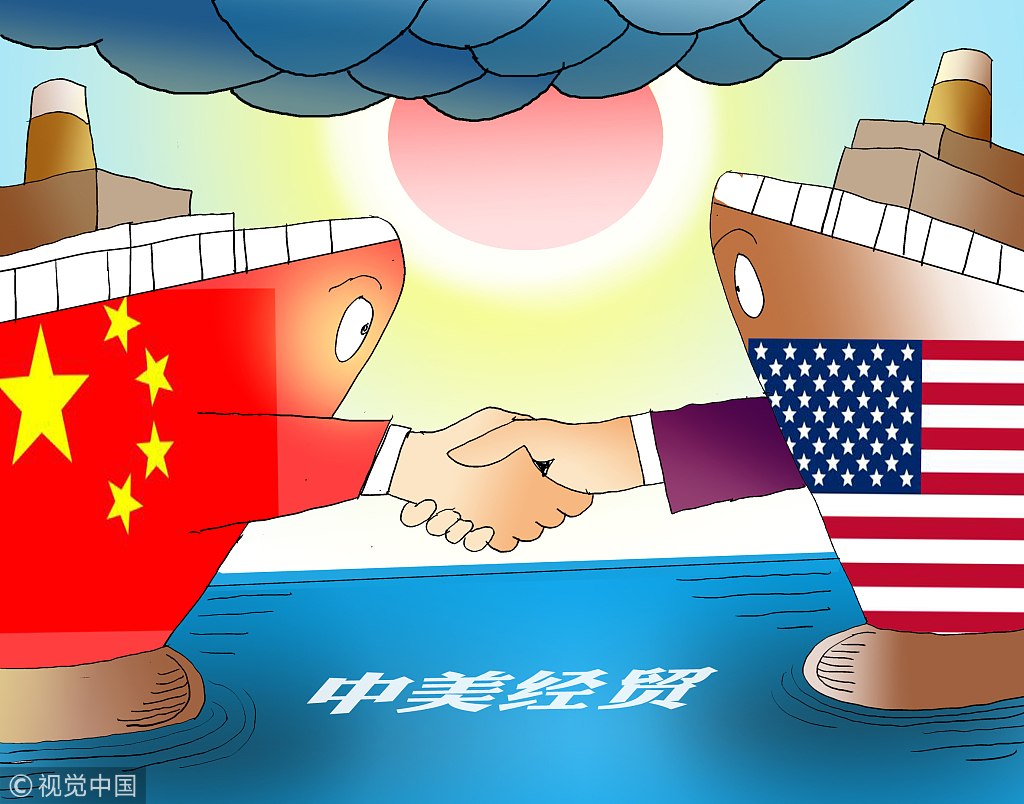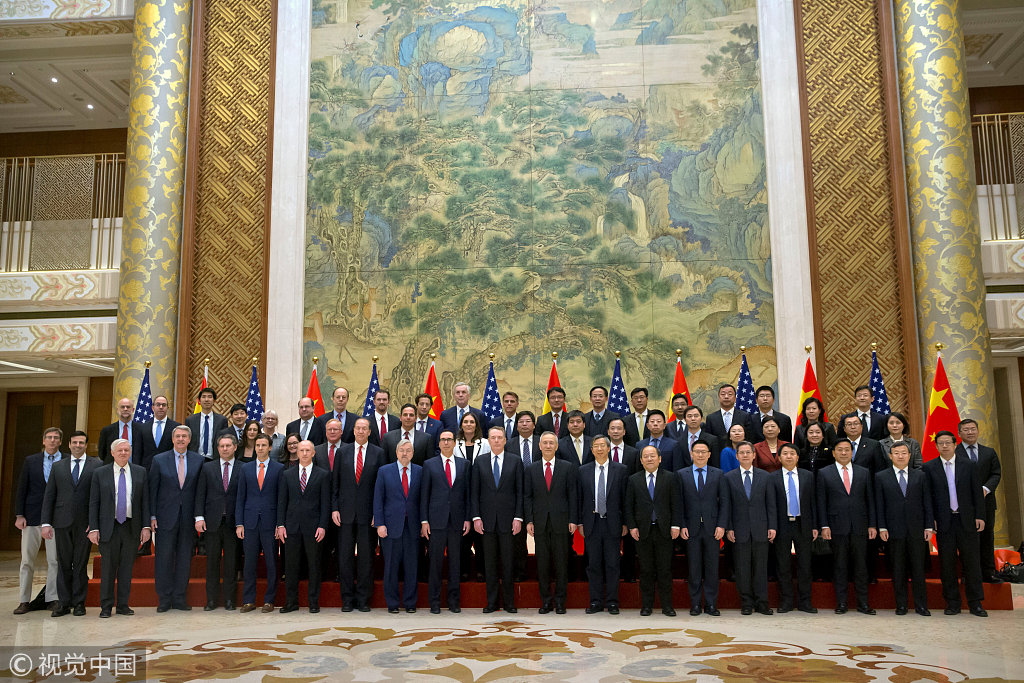
Opinion
09:04, 21-Feb-2019
Why does head-of-state diplomacy matter in trade talks?
Zhu Zheng

Editor's note: Zhu Zheng is a Beijing-based analyst. The article reflects the author's opinions, and not necessarily the views of CGTN.
With the 90 days trade truce deadline drawing closer, China's Vice Premier Liu He has landed in Washington for a new round of trade talks after the last round of negotiations in Beijing, which was reported to have made progress but not enough to finalize a deal to wrap up the trade war.
The Washington round of talks, which will be held on February 21 and 22 and is likely to be the final one before the trade truce expires on March 1, will largely decide whether China and the U.S. can reach a pact. If everything goes smoothly, the two sides will pen a memorandum of understanding.
While much ink has been spilled on the possible result of the trade talks, little has been said about some commonalities shared by the two rounds of talks, and even less has been mentioned about the nuances thereof.

U.S. Trade Representative Robert Lighthizer, left, listens as Chinese Vice Premier Liu He talks while they line up for a group photo at the Diaoyutai State Guesthouse in Beijing, China, February 15, 2019. /VCG Photo.
U.S. Trade Representative Robert Lighthizer, left, listens as Chinese Vice Premier Liu He talks while they line up for a group photo at the Diaoyutai State Guesthouse in Beijing, China, February 15, 2019. /VCG Photo.
For the ongoing one, Vice Premier Liu He, head of the Chinese delegation, serves as President Xi Jinping's special envoy – he will basically carry out whatever is on the president's mind.
This is arguably in line with why President Xi Jinping met the American representatives after the talks in Beijing, which concluded with some developments.
According to President Xi, the two sides should work together to give effect to the framework agreed on by President Trump and himself in Argentina. The president's remarks reiterated the indispensable role played by head-of-state diplomacy in trade frictions.
Yes, in retrospect, it was genuinely the face-to-face discussions between the two leaders that paused what was becoming a headlong race toward economic conflict. Although it cannot accurately be said that China-U.S. relations entirely hinge upon the two leaders' personal ties, personal affection and the leaders' wills played a certain role.
On the whole, when, where, and even whether the two leaders are to meet say enough about the prospects for the two countries' future.

VCG Photo
VCG Photo
First of all, the timing of the two leaders' meeting is closely associated with the prospects for ending a trade war. Last month, when President Trump confirmed that no meetings between him and President Xi were scheduled before the crucial March deadline, American stock markets staged their first major pull-back and the Dow Jones Industrial Average dropped 200 points.
Yet when the White House's tone changed earlier this month, investor confidence and the outlook for global growth were greatly boosted – after all, the timing of the Xi-Trump meeting implies whether the trade war will conclude or not.
Secondly, the location of the meeting also contains enough information. As reported, when China proposed that the two leaders should meet in Hainan, the world was guessing that the meeting would be set after Trump's talks with his Korean counterpart Kim Jong Un. However, because Washington said that the location is not set yet, everything is up in the air for the moment.
Understandably, face-to-face discussions among the two leaders would provide a more effective means of removing obstacles, and it is nigh on impossible for China-U.S. relations to be substantially improved without the two presidents' charisma and political visions because under the two countries' respective constitutional design, only these two gentlemen have a final say on the trade frictions.

Members of U.S. and Chinese trade negotiation delegations pose for a group photo at the Diaoyutai State Guesthouse in Beijing, China, February 15, 2019. /VCG Photo.
Members of U.S. and Chinese trade negotiation delegations pose for a group photo at the Diaoyutai State Guesthouse in Beijing, China, February 15, 2019. /VCG Photo.
On the Chinese side, President Xi as the "core" leader enjoys full leadership over the Party and the country, and foreign affairs fall within his purview. Likewise, the American full-fledged presidential system empowers president with an overarching power over foreign affairs – the Department of State that is in charge of diplomatic talks serves at the president's mercy.
As a result, it would be unwise to turn a blind eye to the fact that in order to win back supporters, some breakthroughs in the talks with China would help Trump to alleviate the difficulties facing him in domestic politics.
Perhaps because of this, the U.S. delegates voiced hope that the two sides would reach a "comprehensive, bold and significant trade agreement that will have long-lasting and positive influence on relations."
By all measures, the Washington talks will be the one shaping the contours of future China-U.S. economic relations. While the outcome remains in doubt until the very end, the two delegation teams should try very hard to increase trust and defuse doubts at the behest of the two leaders.
(If you want to contribute and have specific expertise, please contact us at opinions@cgtn.com.)

SITEMAP
Copyright © 2018 CGTN. Beijing ICP prepared NO.16065310-3
Copyright © 2018 CGTN. Beijing ICP prepared NO.16065310-3